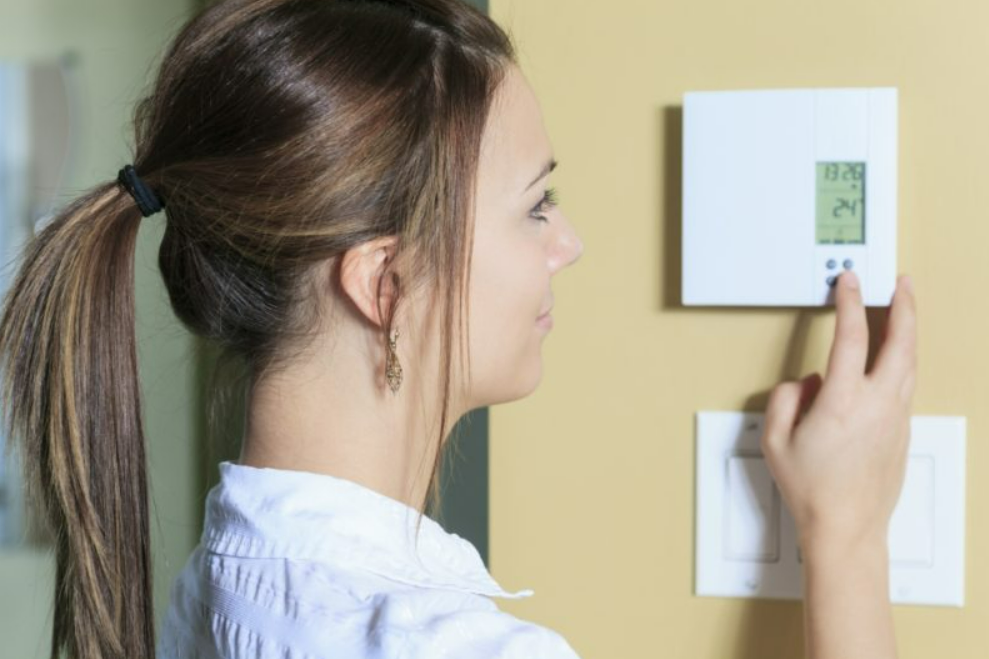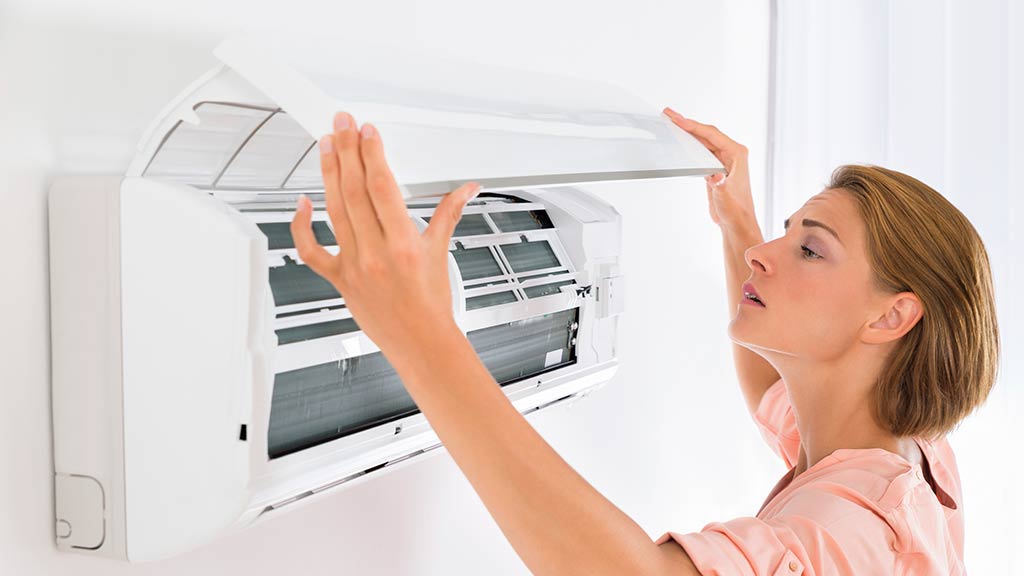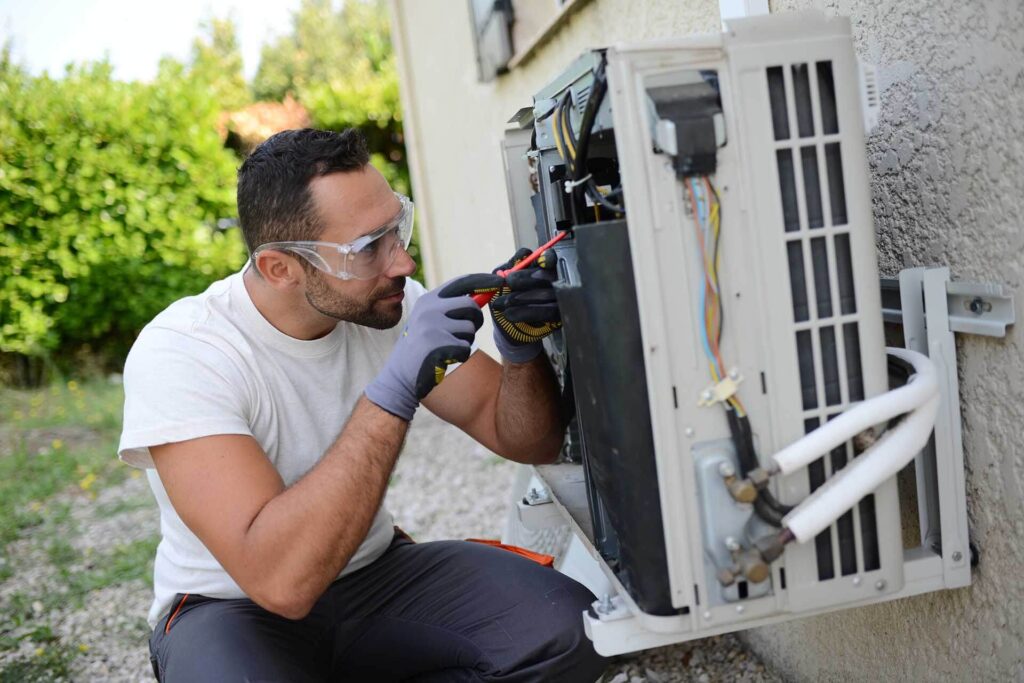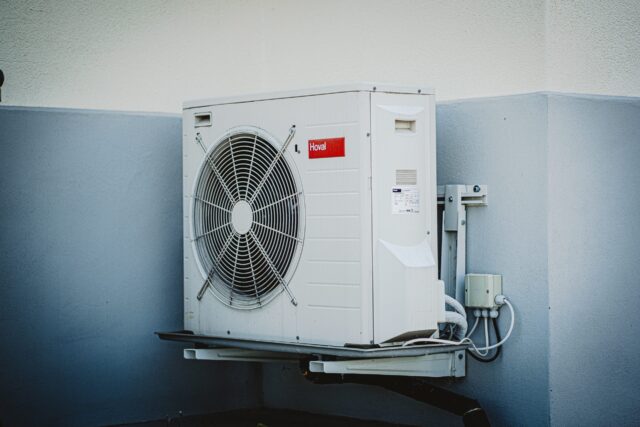At this time of year, your air conditioning unit probably isn’t seeing the most use, and that’s exactly why it’s a great time to go about cleaning and improving it, so that when the hotter summer months come around, your unit will be in perfect condition to get to work cooling you down. We spoke to Michael Aspen, engineer and installer at AirConSpares, about how you can quickly and easily go about improving your air conditioning unit – here’s what he had to say!
Is Your Aircon Becoming Increasingly Expensive To Run?
If you’ve noticed that your air conditioning unit is proving more and more costly to run, then it’s probably becoming increasingly inefficient – i.e. not running as smoothly as it was manufactured to do. Not only is this annoying, but it’s also wasting your money, too.
Fortunately, though, this can almost always easily be improved with a few quick cleaning procedures! Trust us, the effort (and it’s only minimal, anyway) is worth it, because replacing a dirty filter with a clean one, for instance – or simply cleaning your existing filter – can lower your units’ energy consumption by up to 15%.
Below, we’re going to list a basic cleaning routine you can easily go through to get your unit back up to speed. All in all, this will take you a few hours (and half a day, at most). It’s worth noting, by the way, that if you’ve ever actively done anything to improve your air conditioning unit, then that’s hardly surprising; given that only 0.5% of UK homes are thought to have in-built AC units, you’d be forgiven for not knowing their ins and outs in the same ways we do with radiators, say.
1. Turn Off Your Unit!

Now, this might seem an obvious step, but you’d be amazed at how many people seem to forget to! AC units feature multiple different electrical components and moving parts, so it’s important everything is fully turned off, for safety reasons, before you attempt to carry out any cleaning.
2. Don’t Waste Energy!

What’s this got to do with the AC unit, we hear you ask? Well, as a machine, the unit’s job is to carry out work; the more work it has to carry out, the more run down it’ll become over time. If you’re leaving doors and windows open all of the time, then your AC is having to work harder and is wasting energy. By ensuring your unit is only running when it needs to, and by minimizing the amount of energy lost through poor insulation or carelessness, your AC system should run smoother for longer.
3. Clean The Filters

The next step, and probably the most important in terms of quick, wholesale improvements you can make to your unit’s overall performance, is to clean its filters. Filters do exactly that – they filter out dust, dirt and other grime to ensure pristine air quality. What that means, though, is that they quickly get clogged up, preventing your unit from functioning as efficiently as it could do.
Whilst some filters can be cleaned and reinserted, others will need to be replaced entirely. If you’re unsure as to whether you can clean your filter, or in fact need a new one, then get in touch with a specialist AC engineer or installer. The filter is found in different places on different unit types, but common locations include: the return duct, and the system’s air handler.
If it turns out you need to replace your filter, rather than simply cleaning it, then it’ll usually set you back between £10 and £50. If you are able to clean your filter, then here’s how you do it: once you’ve taken out the filter, give it a thorough vacuum to get rid of the majority of the dust and grime. Then, rinse it with warm water. A good point to note here is that ensure that you use truncking for pipes that don’t degrade over time as this too can lead to loss of efficiency.
If the filter is particularly dirty, and if there’s any evidence of mould, then add some mild detergent to the water to give it a more thorough clean. You can also use a 1:1 water to vinegar mixture for this same purpose, too. Leave the filters to dry completely before putting them back into the unit.
4. Check For Blockages

Another common cause of AC inefficiency is blocked ducts and pipes. Check both the intake and outtake pipes to make sure nothing is clogging up your system. If it looks like something is blocking it, then ring an engineer to book a cleaning appointment, as they’ll have the specialist tools required to clear the obstruction without damaging the ducts, themselves.
Your air conditioning unit’s drain line is also prone to blockages, however with this section of the unit, this is something you can clean yourself! Remove the cap from the drain line to inspect whether there any blockages. If it’s clogged up with debris, sludge or any other nasty-looking substances, then mix together some white vinegar, mild detergent and warm water, pour said solution down the drain line, and leave it for between thirty minutes and one hour.
After that period, rinse some plain water through the line, and it should now be flowing smoothly. If not, then the blockage has proved too big for your home-brew cleaning solution to tackle, and you’re going to need to call in a specialist to remove it. A tell-tale sign of whether or not a drain line is clogged is to see if there’s any water pooling around your AC unit. Nine times out of ten, if there is? Then it’ll be a clogged drain line.
Other Common Indicators Your AC Could Be Improved
Higher costs aren’t the only thing indicative of an inefficient air conditioning unit; noisy air conditioning systems, reduced air flow, unpleasant smells coming from the unit, poorer air quality, and (most importantly for an air conditioner) poor cooling are all common signs that your AC unit isn’t functioning like it could (or indeed should) be.
If you’re ever in doubt about the efficacy of your unit beyond what we’ve mentioned here, however – if there are leaks, electrical problems or similar, for instance – then call in an engineer to take a look, rather than rooting around yourself and risking making the problem worse. Cleaning should improve your unit, but if it doesn’t, then there’s likely something wrong with your system, and you might need it servicing, or have parts replaced.







